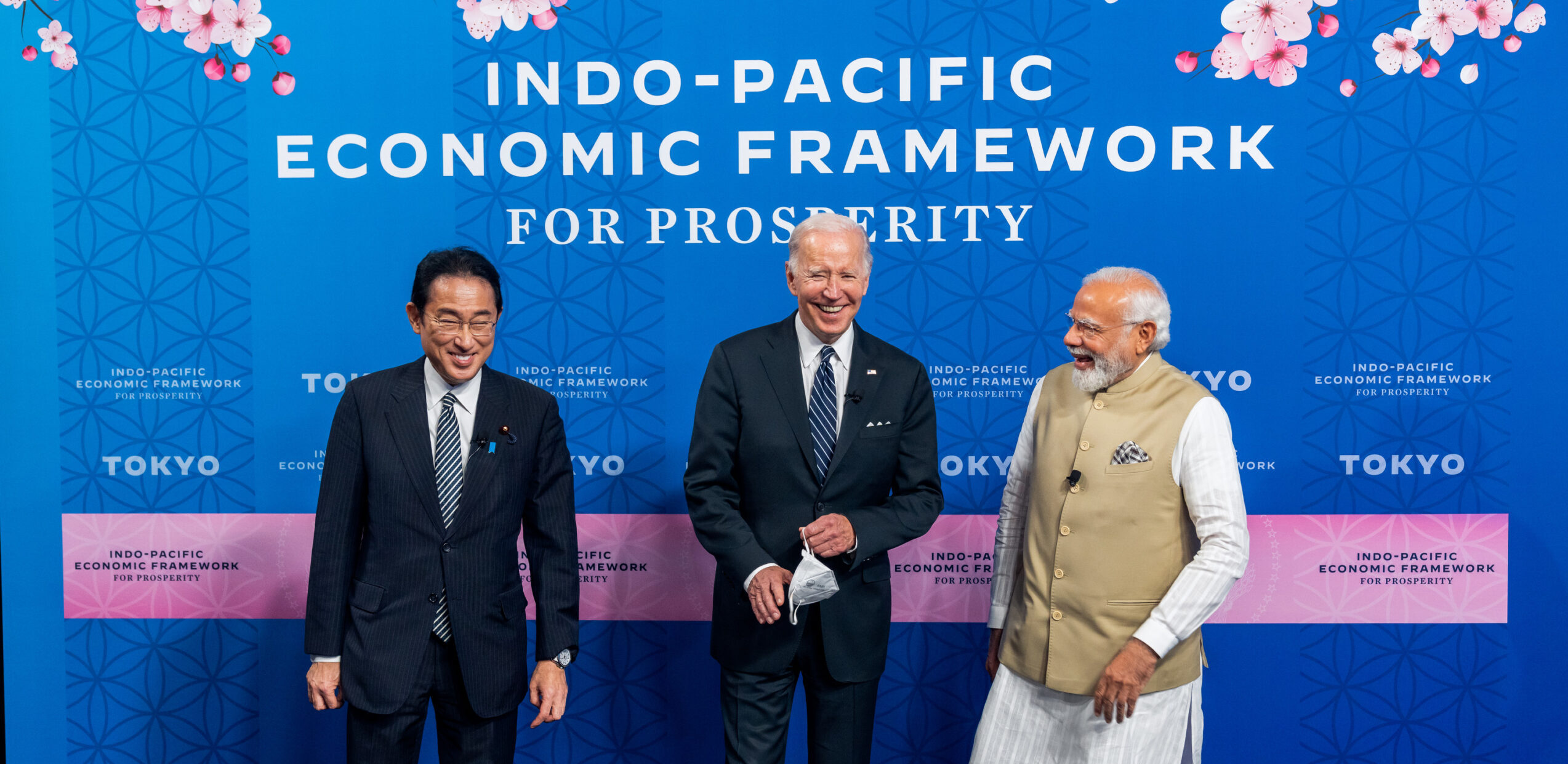Indo-Pacific Economic Framework for Prosperity (IPEF)
why in news
- The Indo-Pacific Economic Framework for Prosperity (IPEF) is an economic initiative launched by the United States in May 2022. It currently consists of 14 member countries in the Indo-Pacific region, including India.
- IPEF is designed to promote economic cooperation among members and contribute to regional stability and prosperity.
Key Features of IPEF:
- Focus: Advancing resilient, sustainable, and inclusive economic growth.
- Structure: Four pillars of cooperation:
- Trade (optional)
- Supply Chains
- Clean Economy
- Fair Economy (including tax and anti-corruption measures)
- Flexibility: Members can choose which pillars to participate in.
IPEF Clean Economy Investor Forum:
- This forum is an initiative under the Clean Economy pillar of IPEF. It aims to connect investors with sustainable infrastructure, climate technology, and renewable energy projects in the region.
Opportunities for India:
The upcoming Clean Economy Investor Forum in Singapore presents two key opportunities for Indian industry:
- Climate Tech Track: Indian climate tech companies and startups can compete for recognition and exposure to global investors.
- Infrastructure Track: India can showcase investible sustainable infrastructure projects in energy transition, transport and logistics, and waste management/waste-to-energy sectors.

How is IPEF different from RCEP?
| IPEF | RCEP |
| The bloc is led by USA | The bloc is led by China |
| The bloc represents 40% of world’s GDP | The block represents 30% of the world’s GDP |
| India is a member of the bloc | India didn’t join the bloc but still has a window to join the bloc |
| The block focuses on digital economy, supply chains, clean energy infrastructure, and anti-corruption measures | The block focuses on negotiation on tariffs or market access |
| The bloc has no tariffs | The bloc has tariffs |
What are the concerns in joining the IPEF?
- There is great pressure on India to join the trade pillar, but the other pillars also contribute to developing hard new economic architectures and structures that are not tariff-based.
- In the long run, it could have a stronger effect on economic and trade flows than tariffs.
- In an increasingly digitalising world, fixed supply chains and giving up policy spaces in key areas would lead to an irreversible economic dependency.
- The IPEF can already be seen to have deep implications in
- Agriculture, in terms of genetically modified seeds and food,
- Surrendering policy space for regulating Big Tech,
- Compromising a comparative advantage in manufacturing because of unfair labour and environment standards.
Significance of the Indo-Pacific Region:
The Indo-Pacific region is economically and strategically important, holding:
- Over half the world’s population
- Nearly two-thirds of the global economy
- Significant oil, natural gas, and critical mineral reserves
- Roughly 60% of global maritime trade
IPEF is an important platform for India to engage with other countries in the region on economic issues and tap into the vast potential of the Indo-Pacific.

No Comments